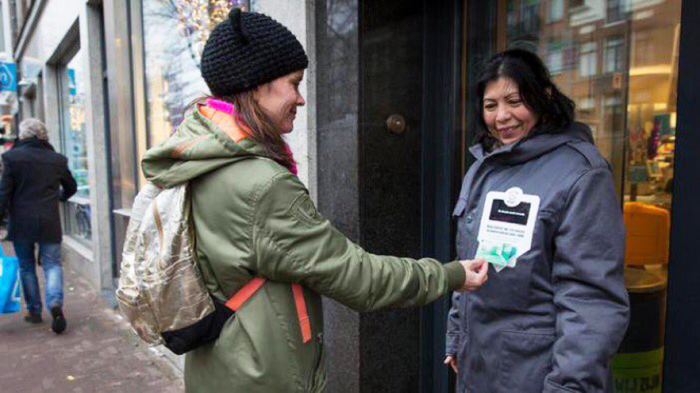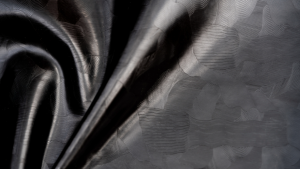
A group of Dutch designers have created an experimental jacket called "Pinjas" that makes instant, cashless donations to the homeless. The high-tech wearable has a card reader sewn into it so that anyone passing by a homeless person can make an easy donation using their bankcard.
Recognising that consumers don't walk around with cash as much as they used to (choosing to carry a plastic card for its convenience and security), designers of N = 5 advertising agency, including Carsten van Berkel and Stefan Leenderste, have created an item of clothing that accommodates this modern trend.
The winter coat was also designed in response to the recent spike in homelessness in the Netherlands. Dutch statistics office CBS recently reported that the country saw a 74 per cent increase in homelessness from 2009 to 2015 as a result of the global financial crisis.
The jacket’s card reader works with a small interface screen that prompts a potential donator to hold their card up against the screen. A single Euro is then debited from the card holder’s account wirelessly. The wearer can then exchange their credit for meals, a place to sleep or put it towards the application for a skills development course.
The system was designed to work with affiliated homeless shelters or welfare institutions. That these are the only places that the card-reading jacket’s credit would be exchanged gives peace of mind to the donator that their charity is used honestly. It is a system that is meant to help those who have fallen on hard times to transition out of it, starting with the swift swipe of a card.
It is unclear what kind of maintenance would be necessary to use the jacket on a regular basis. Due to the fact that the coat has an electronic device sewn into it, it would need a change of batteries or charge of power at regular intervals. It is also presumably unsafe to wash the Pinjas with water like normal clothes, as water might damage the card reader. The project still needs to be further developed (to establish a network of cooperating shelters) before it becomes a mass-distributable item.
Both Carsten van Berkel and Stefan Leenderste studied at the Willem de Kooning Academy of Arts in Rotterdam. Van Berkel went on to the School of Arts in New York and Leenderste studied Photography at the Academy of Arts in Antwerp before they teamed up to start tackling design problems together.





